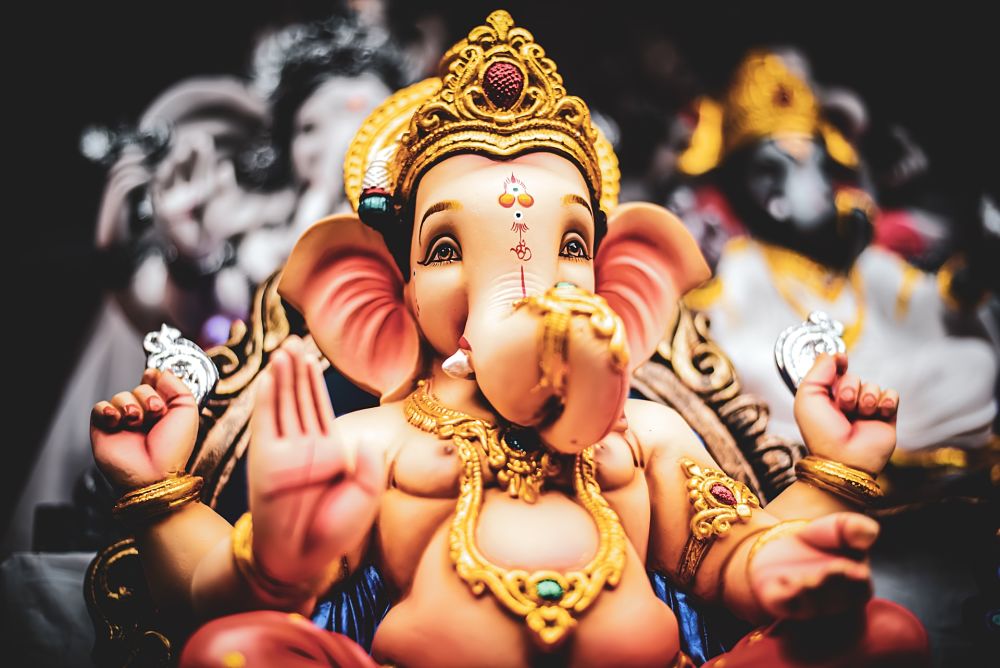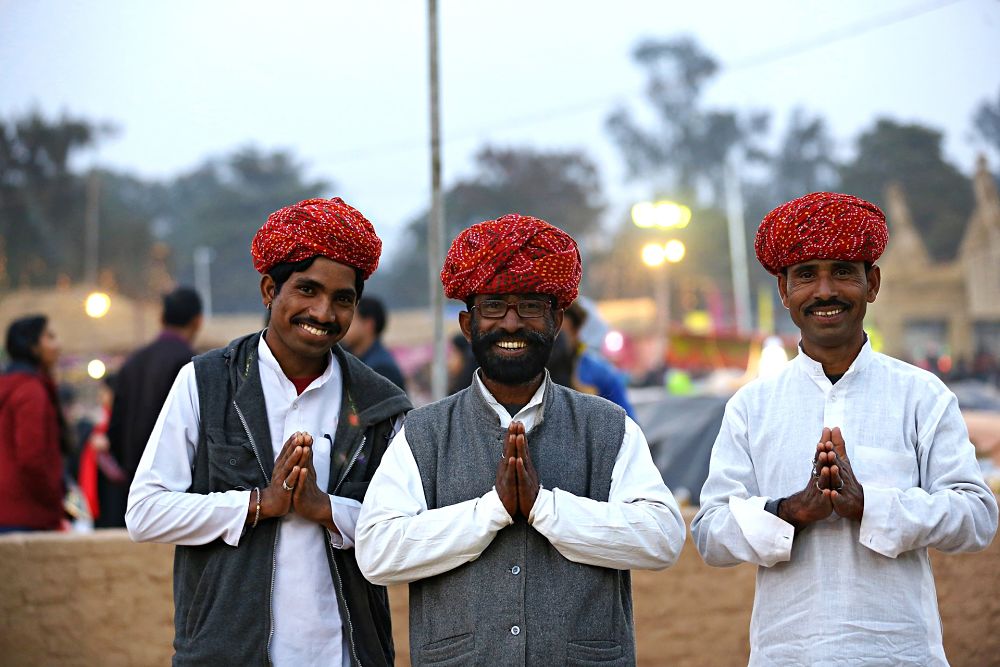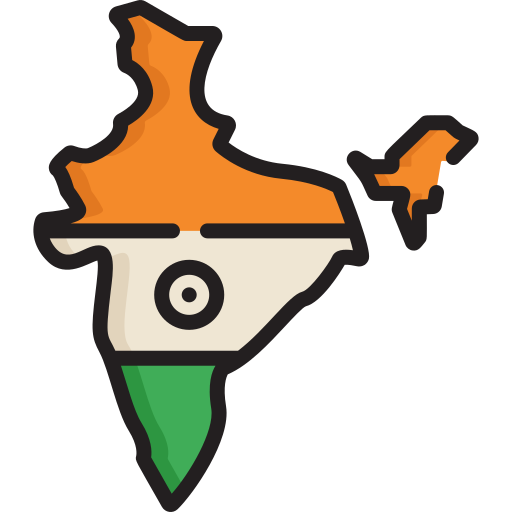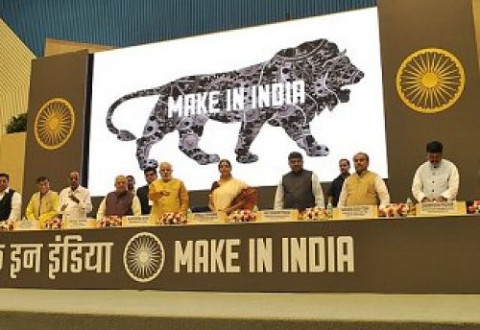India, despite years of efforts by PM Narendra Modi to implement changes to the contrary, remains one of the toughest places on the planet to do business.
A highly-advanced nation in many respects, with an educated English-speaking population, a wealthy middle-class, advances in technology and an international business outlook, many from the outside approach India as easy pickings.
They soon discover that India is not so easy to do business in.
Hence it's ranking byThe Business Culture Complexity Index, as the 49th most difficult country to do business in out of 50 leading economies!
In turn, The World Bank lists India as the 130/190 countries in business difficulty.
Although practical commercial factors impact this ranking, such as access to credit or electricity, India is known for being culturally challenging.
Should you travel to India for business with no homework, then you are in for a real surprise.
What do you need to know before your business trip to India?
Cultural differences between doing business in India and the rest of the world are many…to get you started here are some tips to get you going!
1. Prepare For Culture Shock
First and foremost be prepared for a total culture shock, especially if you haven’t travelled to this part of the world before.
Not only will your senses be shocked by all the new sights and sounds but your inner being will be rocked by a completely different way of life. India is an ancient land and one needs to go in with an open mind, open heart and a positive intention.
2. Deal With Differences
India is a place of colourful, complex contradictions which the foreigner can find testing.
The culture encourages non-conformity to a certain extent and as a result, you will find yourself having to deal with all manner of differences from people’s names, their religions, dress, daily routines and approach to business. If you are not used to your business counterpart discussing the finer points of belief in God or explaining the virtues of a vegan diet, then you need to prepare yourself!

Indian culture and society and heavily influenced by Hinduism, including taboos.
Click here to learn about 10 taboos you must avoid in India!
Photo by Mohnish Landge on Unsplash
3. Stop Stereotyping
Prior to visiting India, you will come with your own stereotypes and prejudices, usually formed by the media or your experience of the Indian culture at home/work.
It is crucial to leave all this cultural baggage behind as it will not serve you in India itself – your stereotypes will simply lead you to making wrong conclusions about people, their behaviours, intentions or actions. Go in with an open mind.
4. Get Into Group-think
India is a collective, group-orientated culture. If you are travelling to Indian for business then get ready to do business with groups or teams of people; you will seldom work one-to-one.
When working with a group, remember consensus is important in terms of shaping outcomes and understanding hierarchy is critical in terms of maintaining face and power structures. It is important to understand the dynamics of any group you are working with.
5. Know Your Place
As well as knowing your place in terms of being a foreign visitor to India, it is even more important to know where in India you physically are!
All the regions and major commercial cities have cultures of their own that can be different to other places. Mumbai for example is known as a tough place to do business whereas Delhi is a lot more enjoyable. Chennai on the other hand is slow and conservative. Always be aware of slight differences between places in terms of religion, politics, history, vibe, etc.

The namaste is the most common way of greeting people in India. You will also notice people use their heads to communicate.
Click here to learn what the head nods mean in India!
Photo by Nishant Aneja from Pexels
6. Check the Calendar
Prior to any trip to India absolutely make sure you pull out a calendar of Indian holidays and religious festivals.
Arriving slap bang in the middle of a major Hindu festival will soon see your business goals soured. Remember the holidays can also be on different days in different regions!
7. Re-think Your Working Day
Don’t travel to India for business thinking you will be working from 9-5. In India business starts early and finishes late, often with very grey lines between business and personal life; taking work home over weekends is very common.
People tend to wake up and get outside around dawn to exercise or eat before the onset of the day’s heat. Most people will be at work by 8 am. Breakfast meetings however can go until 10 am! Dinner meetings are also the norm and can sometimes start as late as 9 pm! Be flexible with when and where you meet people to do business.
8. Expect the Unexpected
Things change easily in India. Even when you have been assured that your counterpart will be there at 11 am, it is very normal for them to cancel with only 15 minutes’ notice.
Having someone arrive hours late to a meeting also is not unheard of. Indians know and expect things to ‘go wrong’ in everyday life – a car breaking down, a family emergency, a sudden change in mind by the boss, can all happen suddenly and impact everything else. The key difference is the Indian expects it and ‘goes with the flow’, whereas the foreigner tends to believe these things are to be controlled and finds it frustrating when they happen.
9. Practice Patience
If being patient isn’t your forte, then start practising now. Being adaptable, patient and kind are assets in India, not only in showing your Indian counterparts that you are easy to work with but for maintaining your own health and sanity.
Approaching India as a place where you can change local ways and implement standards more to your liking will almost always lead to disaster. It is important to win the hearts and minds of people prior to implementing change and this can only be achieved through patience.
10. Be More Formal
Indians are hierarchical and a result like a sense of formality, initially at first anyway. If you are from a more, let’s say ‘relaxed’ culture, then you may want to put on some extra good behaviour.
For example, wearing a tie is still taken seriously in India and may be viewed as lax by some should a man not wear one. Addressing people with their first names would be a no-no, especially so if that person had a title such as Dr, CEO, Minister, etc. Always err on the side of formal until the level of comfort is established by your Indian counterpart.
11. Deal With Diplomacy
Indians are very diplomatic and expect it in return. They are indirect in their approach to communication, always with one eye on maintaining face and relationships.
How things are said is very important; even when delivering bad news or an opinion that might totally contradict another’s, Indians expect one another to do it with diplomacy and a sense of class. Being direct in saying what you think or feel is considered uncultured, emotional and brash.
12. Learn when ‘Yes’ means ‘No’ and ‘No’ means ‘Yes’
Following on from the above, because of their diplomatic and indirect communication style, Indians have a very hard time saying ‘no’. Why? Because they don’t want to disappoint.
So even if you ask an Indian for directions, he/she will offer them even if they don’t have a clue where it is you wish to go. ‘No’ can sometimes mean ‘yes’ and vice-versa. What is important is that you start to use emotional intelligence to work out whether your Indian counterpart is being polite or saying ‘no’ or ‘yes’. Asking closed questions such as, “Are you sure?” or “Do you understand?” will only lead to more confusing ‘yes’/’no’ answers!
13. Give People Time & Space
Working with Indian teams can sometimes be frustrating to a foreigner who expects instant feedback and input during meetings and the like.
Active questioning is not common in India, especially in the group setting where complex and subtle hierarchies may be at play. You may find complete silence during meetings when asking for input or especially any sort of critique. If this should be the case then you have to actively empower people to contribute and/or give people time and space to go away and bring ideas in other forms.
14. Enjoy the Passion
Indians can appear argumentative and emotional – to a certain extent they are but not in any negative sense.
They love to debate and share opinions and often do this in very flamboyant means using gestures, body language and expressive language. However, there is seldom if often any form of anger. If you are in a meeting where things get ‘passionate’, let people express themselves and try to remain calm. In the end, once emotions have died down, people will come back round to business.
15. Drink Tea
If you are a coffee person, then bad news, you are about to enter a tea-loving country.
You will be offered tea everywhere you go and by ‘tea’, we mean milky sweet tea. If you don’t like tea then have a good reason for refusing! Tea is crucial as part of the relationship-building process and a fundamental expression of Indian hospitality.
16. Get Personal
Lastly, Indians like people. They want to know about the people they work or do business with.
You will therefore find you receive lots of questions about your personal life or family. This is not meantt to intrude – this is simply meant to get to know you as a person. Sharing personal information will lead to developing faster and stronger relationships. Withholding it will lead to suspicion as to your true nature!
Take a Professional Training Course on Indian Business Culture

Boost your success when working in India, by enrolling on our comprehensive eLearning course for business professionals!
Jam-packed with essential information, guidance and strategies, this eLearning course will help you to maximise your outcomes and build trusting relationships.
Main image from Flickr (CC BY-SA 2.0)

